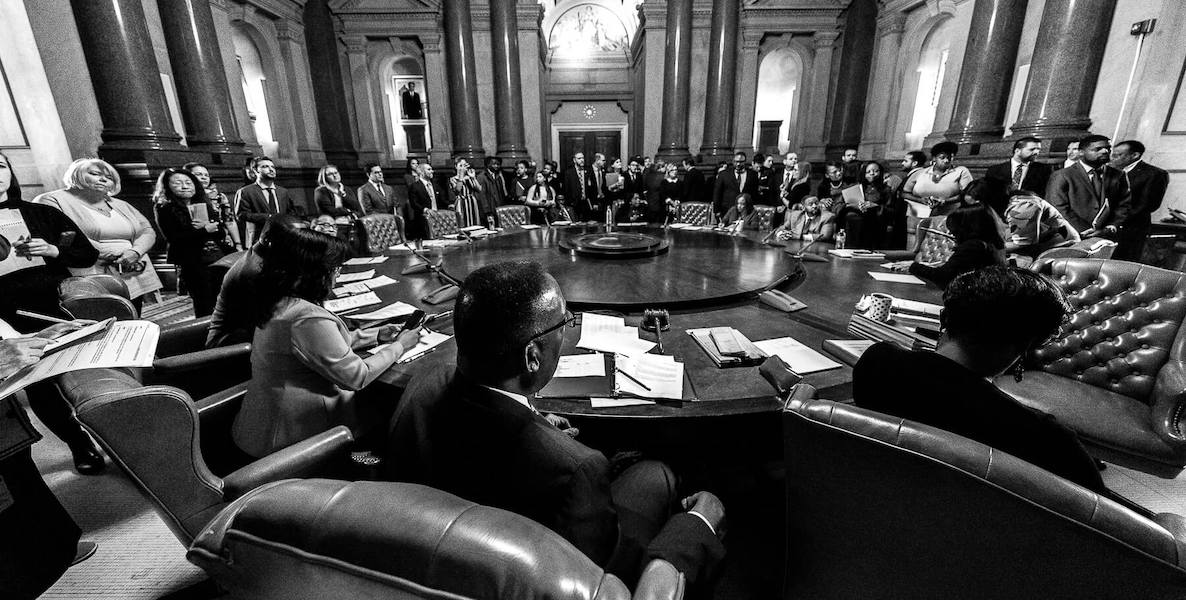Councilmanic prerogative refers to the near-absolute power each of the city’s 10 district councilmembers wield over development projects in their respective districts.
This longstanding tradition — not codified in any law or the Home Charter — is a gentleperson’s agreement whereby district councilmembers defer to the councilmember in whose district a project resides.
The result: Each councilperson holds the power to green-light or stall all projects in their district, whether for good or ill.
Councilmanic prerogative in action
- In 2022, instead of amending a bill to make pandemic-inspired streateries permanent citywide, Council elected to preserve individual District Councilperson control over each dining structures everywhere but in “by-right” zones.
- Councilperson Kenyatta Johnson and his spouse Dawn Chavous went to trial on bribery charges in March 2022. The allegation: Johnson used councilmanic prerogative to bestow favorable treatment upon developer Universal Companies in exchange for $67,000 paid to Chavous’ consulting firm — for approximately 40 hours of work. (The trial ended in mistrial.)
- The Barnes’ Foundation’s 2012 move to the Benjamin Franklin Parkway was delayed by eight years, in part because Councilperson Jannie Blackwell blocked the relocation of the Parkway’s Youth Detention Center to her West Philadelphia district — until she got a $12 million grant for a community center named after her late husband.
- In 2004, Councilperson Brian O’Neill held up an $800 million expansion of Fox Chase Cancer Center in his Northeast district because he wanted Fox Chase to fund a “community benefit fund.” (When Fox Chase merged with Temple, the issue became moot.)
The case for councilmanic prerogative
District legislators, including former Councilmember Maria Quiñones Sánchez, contend that prerogative is their way of responding to their community’s needs because they — as the elected representatives — know better than anyone in city government what is best for the neighborhood.
The case against councilmanic prerogative
The tradition weakens the power of the planning commission, zoning board and neighborhood groups. Developers claim what’s best for the city rarely comes up, as opposed to what’s best for the individual councilperson — and that the tradition can lead to de facto extortion.
In some cases, it has facilitated actual extortion: Former councilmembers George Schwartz, Rick Mariano and Leland Beloff all did time for shaking down developers, and it accounts for most of the charges against indicted city councilpeople over the last several decades. Also, according to a 2022 survey by A Greater Philadelphia, only one-third of citizens support councilmanic prerogative.
Only a handful of cities still practice the tradition. Even in Chicago, where a dozen aldermen have gone to prison for abusing their “aldermanic privilege,” Mayor Lori Lightfoot instituted policies that severely limited the practice when she took office in 2019.
![]()
MORE ON COUNCILMANIC PREROGATIVE FROM THE CITIZEN


